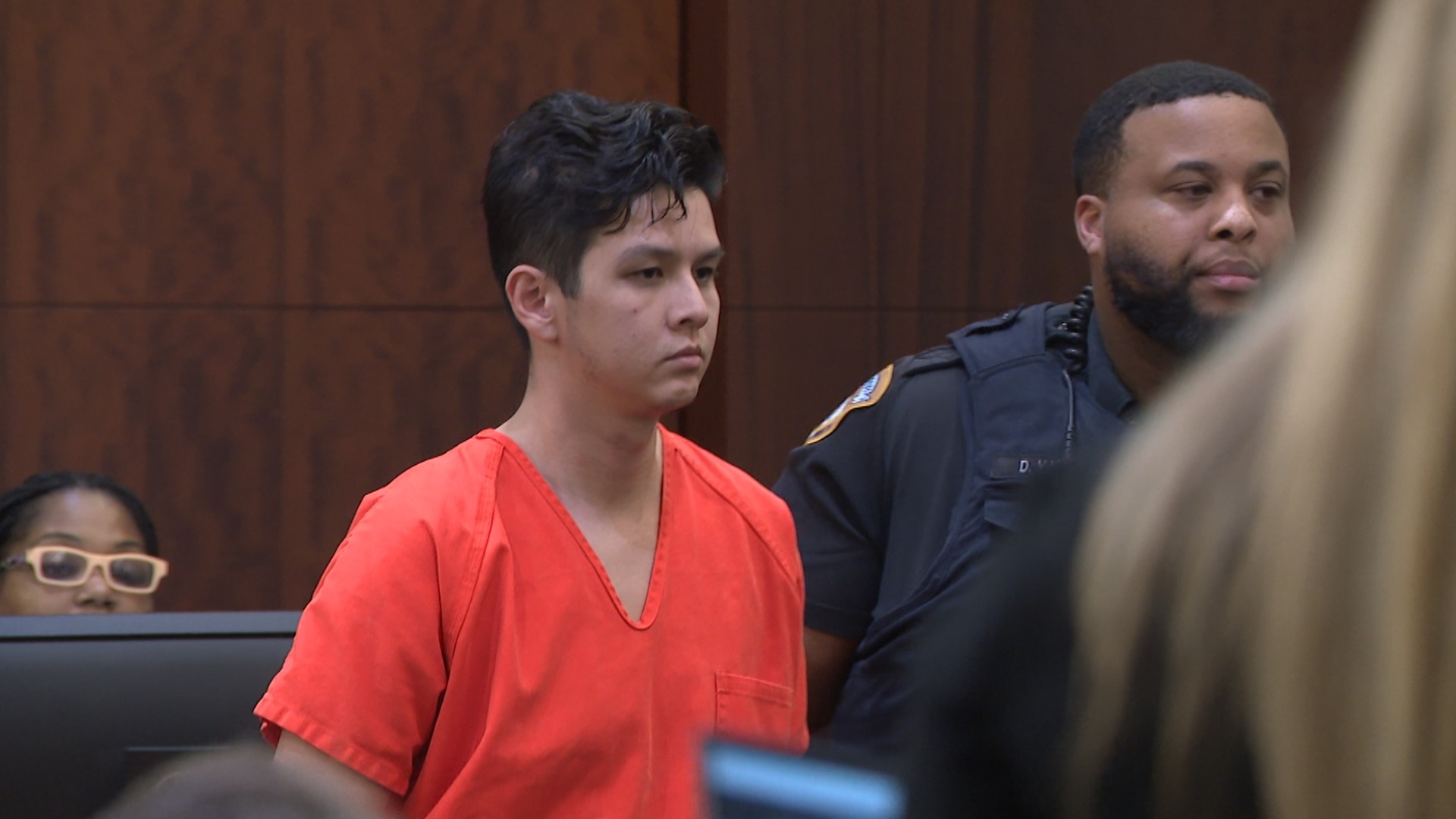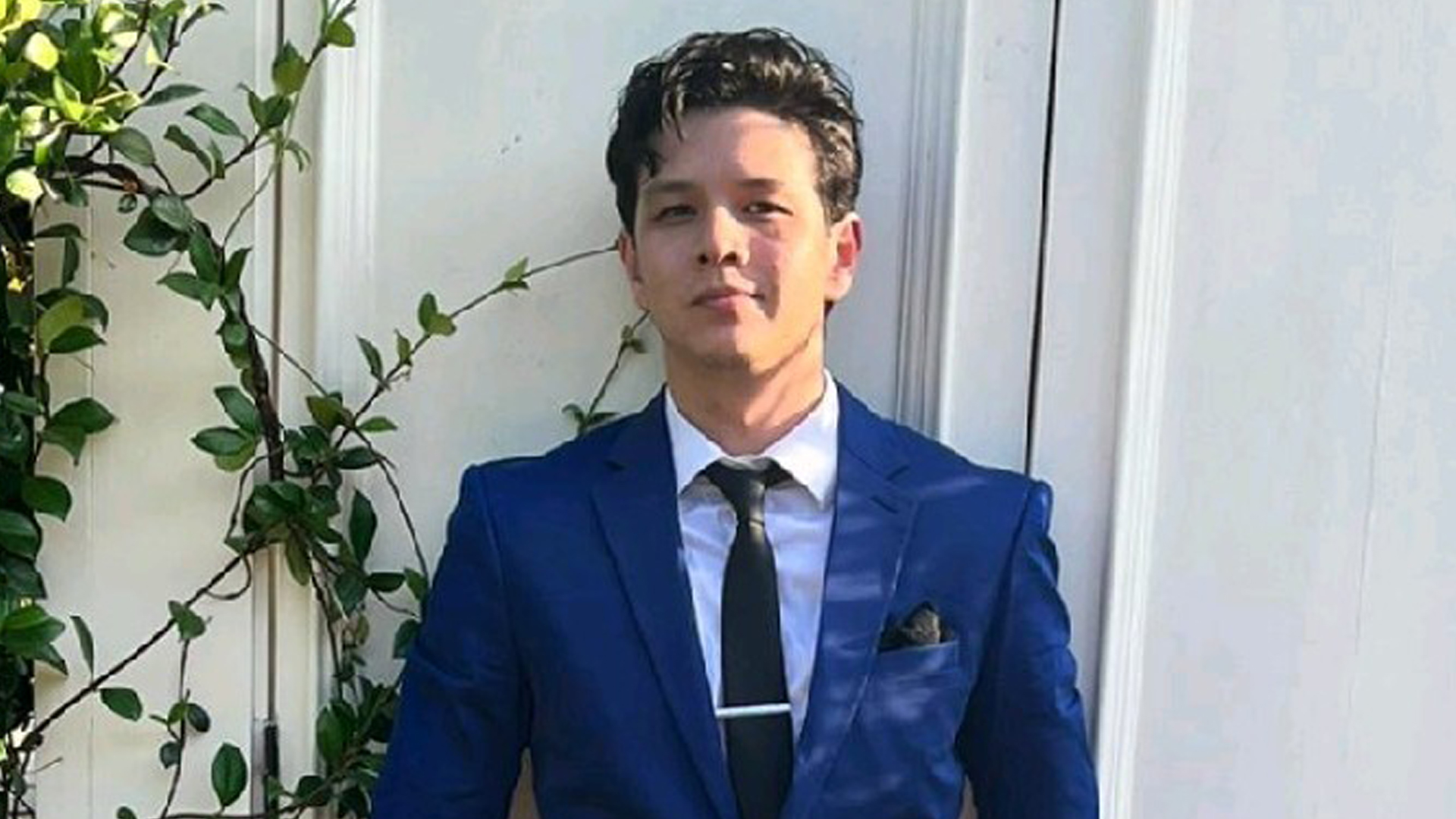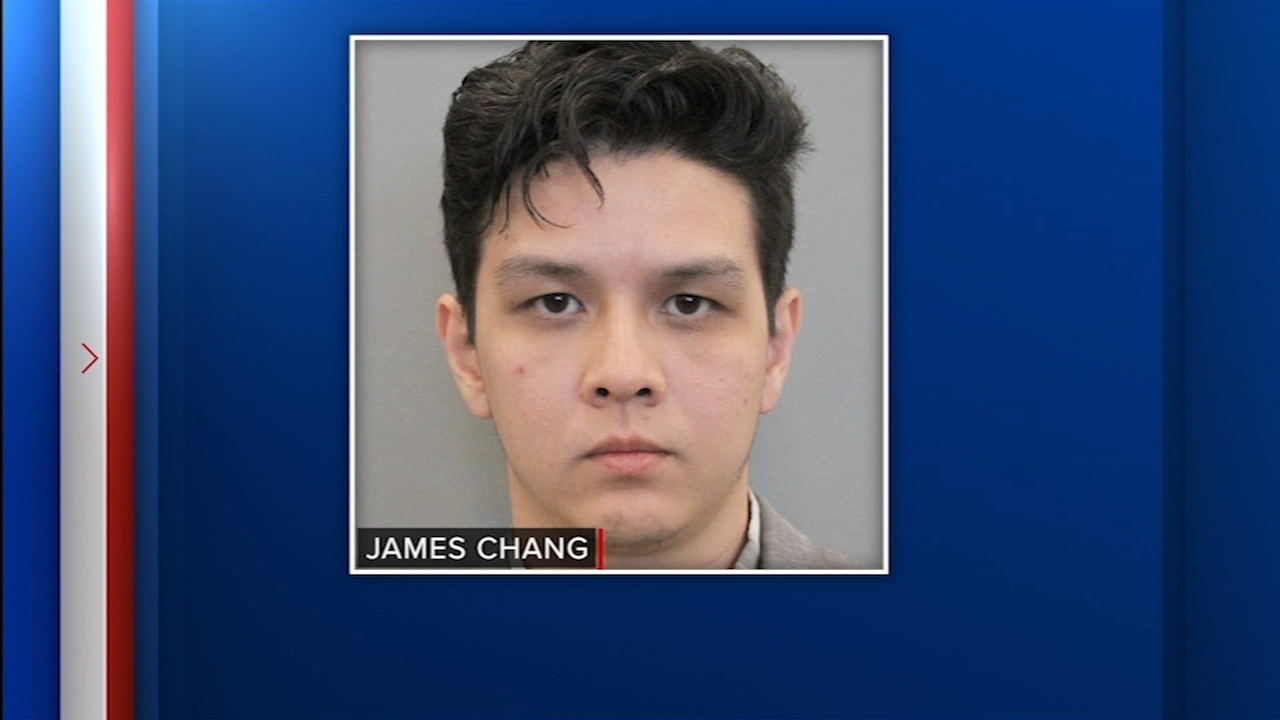
News Flash: University of Houston Professor James Chang Arrested
In a recent development, James Chang, a professor at the University of Houston, has been arrested. This significant news pertains to an ongoing investigation into academic misconduct at the esteemed institution. The incident highlights the growing concern and scrutiny surrounding ethical practices within academia.
The arrest of Professor Chang serves as a stark reminder of the importance of maintaining academic integrity and upholding the highest standards of research and scholarship. It also underscores the benefits of thorough investigations and the role they play in ensuring the credibility and reputation of educational institutions. Historically, universities have been at the forefront of promoting knowledge and innovation, and safeguarding their integrity is crucial for maintaining public trust and confidence.
University Of Houston Professor James Chang Arrested
The arrest of University of Houston Professor James Chang underscores the crucial significance of maintaining academic integrity and upholding ethical standards in higher education. This incident highlights several key aspects that warrant thorough examination:
- Institutional Reputation
- Academic Misconduct
- Investigative Procedures
- Faculty Accountability
- Student Trust
- Public Confidence
- Ethical Implications
- Consequences of Misconduct
These aspects are interconnected and play a vital role in shaping the credibility and integrity of educational institutions. Thorough investigations into allegations of academic misconduct are essential to ensure fairness, transparency, and the maintenance of high academic standards. Institutions must prioritize the establishment of robust mechanisms for addressing such allegations and holding individuals accountable for their actions. By doing so, they can safeguard the trust of students, the public, and the academic community at large.
Institutional Reputation
Institutional reputation is a critical component of any university's success and standing in the academic world. It reflects the institution's academic quality, research output, faculty expertise, and overall contributions to society. A strong reputation attracts top students, faculty, and research funding, creating a virtuous cycle that further enhances the institution's standing. Conversely, a damaged reputation can have a devastating impact, leading to a decline in enrollment, funding, and prestige.
The arrest of University of Houston Professor James Chang is a case in point. The incident has cast a shadow over the university's reputation, raising concerns about the integrity of its academic programs and research. The university has responded swiftly by launching an investigation into the matter, but the damage to its reputation has already been done. This incident highlights the importance of maintaining the highest ethical standards in academia, as any lapse can have serious consequences for the institution's reputation.
Universities must prioritize the establishment of robust mechanisms for addressing allegations of academic misconduct and holding individuals accountable for their actions. By doing so, they can safeguard their reputation and maintain the trust of students, the public, and the academic community at large.
Academic Misconduct
In the context of "University of Houston Professor James Chang Arrested", academic misconduct refers to any violation of the ethical principles and standards governing academic research and scholarship. Such misconduct can take various forms, including:
- Fabrication
Creating or inventing data, results, or information. - Falsification
Manipulating or changing data, results, or information to misrepresent findings. - Plagiarism
Using or presenting someone else's work as one's own without proper attribution. - Self-Plagiarism
Reusing one's own previously published work without appropriate citation.
These forms of academic misconduct undermine the integrity of research and scholarship and can have serious consequences for individuals and institutions alike. In the case of Professor Chang, the allegations of academic misconduct have led to his arrest and could potentially damage his career and the reputation of the University of Houston.
Investigative Procedures
In the context of "University of Houston Professor James Chang Arrested", investigative procedures refer to the systematic steps and actions taken to gather and analyze information related to allegations of academic misconduct. These procedures are crucial for ensuring a fair, impartial, and thorough investigation, and their implementation can have a significant impact on the outcome of the case.
- Data Collection
This involves gathering all relevant information related to the allegations, including documents, emails, data, and witness statements. A comprehensive approach to data collection ensures that all pertinent information is considered during the investigation. - Analysis and Interpretation
The collected data is carefully analyzed and interpreted to identify patterns, inconsistencies, and potential evidence of academic misconduct. This process requires expertise in research methods and a deep understanding of academic standards. - Interviewing
Interviews with the accused individual, witnesses, and other relevant parties are conducted to gather first-hand accounts and perspectives on the allegations. The ability to ask probing questions and evaluate the credibility of witnesses is essential. - Report Writing
The findings of the investigation are documented in a comprehensive report that outlines the evidence, analysis, and conclusions reached. This report serves as a record of the investigation and its outcome.
In the case of Professor Chang, a thorough investigation involving these procedures will be essential for determining the validity of the allegations and ensuring a fair outcome. The findings of the investigation will have implications for Professor Chang's career, the reputation of the University of Houston, and the integrity of academic research.
Faculty Accountability
Faculty accountability refers to the responsibility and obligation of faculty members to adhere to ethical and professional standards in their teaching, research, and service. It encompasses a range of practices and mechanisms designed to ensure that faculty members fulfill their duties with integrity and competence. In the context of "University of Houston Professor James Chang Arrested", faculty accountability is a critical component in maintaining the integrity of the university's academic programs and research.
The lack of faculty accountability can have serious consequences, as evidenced by the case of Professor Chang. Allegations of academic misconduct, if proven true, represent a breach of ethical and professional standards that can undermine the trust of students, colleagues, and the public. Faculty accountability mechanisms, such as peer review, research integrity committees, and grievance procedures, are essential for addressing allegations of misconduct, ensuring fair and impartial investigations, and holding individuals accountable for their actions.
In the case of Professor Chang, the university's response to the allegations highlights the importance of faculty accountability. The university promptly launched an investigation, demonstrating its commitment to upholding ethical standards and addressing concerns about academic misconduct. The outcome of the investigation will have implications for Professor Chang's career and the reputation of the university, underscoring the significance of faculty accountability in maintaining the integrity of academic institutions.
Student Trust
Student trust is a critical component of any educational institution. When students trust their professors and the institution as a whole, they are more likely to be engaged in their learning and to achieve their academic goals. In the case of "University of Houston Professor James Chang Arrested", the allegations of academic misconduct have shaken the trust of students and raised concerns about the integrity of the university's academic programs.
Student trust is built on a foundation of transparency, accountability, and ethical behavior. When students feel that their professors are honest and trustworthy, and that the institution is committed to upholding academic integrity, they are more likely to trust the educational process and the value of their degrees. Conversely, when students lose trust in their professors or the institution, it can have a devastating impact on their learning and their future careers.
The case of Professor Chang is a reminder of the importance of student trust and the need for universities to take allegations of academic misconduct seriously. By investigating these allegations thoroughly and taking appropriate action, universities can help to restore student trust and maintain the integrity of their academic programs.
Public Confidence
Public confidence is critical to the success of any university. When the public trusts a university, it is more likely to support the university financially, send their children to the university, and view the university as a valuable asset to the community. In the case of "University of Houston Professor James Chang Arrested", the allegations of academic misconduct have shaken public confidence in the university and raised concerns about the integrity of its academic programs.
Public confidence is built on a foundation of trust and respect. When the public believes that a university is honest, ethical, and committed to academic excellence, it is more likely to trust the university and its programs. Conversely, when the public loses confidence in a university, it can have a devastating impact on the university's reputation and its ability to attract students, faculty, and funding.
The case of Professor Chang is a reminder of the importance of public confidence and the need for universities to take allegations of academic misconduct seriously. By investigating these allegations thoroughly and taking appropriate action, universities can help to restore public confidence and maintain the integrity of their academic programs.
In conclusion, public confidence is a critical component of the success of any university. When the public trusts a university, it is more likely to support the university financially, send their children to the university, and view the university as a valuable asset to the community. Universities must take allegations of academic misconduct seriously and investigate them thoroughly in order to maintain public confidence and protect the integrity of their academic programs.
Ethical Implications
Within the context of the arrest of University of Houston Professor James Chang, ethical implications arise, encompassing multiple dimensions that profoundly impact the academic community and beyond. These implications range from the integrity of research and scholarship to the erosion of public trust.
- Academic Integrity
Allegations of academic misconduct, such as fabrication or plagiarism, undermine the very foundation of scholarly pursuits. Rigorous research and intellectual honesty are paramount to advancing knowledge and ensuring the credibility of academic institutions.
- Erosion of Trust
When academic misconduct occurs, it erodes public trust in the institution and its faculty. The public relies on universities to produce ethical and responsible graduates, and any breach of this trust can have far-reaching consequences.
- Misuse of Resources
Academic misconduct often involves the misuse of research funds, facilities, or other resources. This misappropriation not only wastes valuable resources but also diverts them from legitimate research endeavors.
- Damage to Reputations
The arrest of Professor Chang has damaged the reputation of both the individual and the University of Houston. Such incidents can tarnish the legacy of esteemed institutions and make it difficult to attract top talent and research funding.
These ethical implications underscore the critical importance of maintaining the highest standards of integrity in academia. Universities must prioritize the establishment of robust mechanisms for addressing allegations of misconduct and holding individuals accountable for their actions. Only by doing so can they safeguard their reputations, restore public trust, and ensure the ethical conduct of research and scholarship.
Consequences of Misconduct
The arrest of University of Houston Professor James Chang for alleged academic misconduct underscores the serious consequences that can arise from such actions. This incident highlights the importance of maintaining ethical standards in academia and the potential repercussions for individuals and institutions involved in misconduct.
- Academic Sanctions
Universities have established policies and procedures to address academic misconduct, and consequences can range from probation and suspension to expulsion. In the case of Professor Chang, if found guilty, he could face severe academic sanctions that could jeopardize his career.
- Reputational Damage
Allegations of academic misconduct can tarnish the reputation of both the individual and the institution. The public's trust in the integrity of academic research and scholarship can be eroded, leading to diminished credibility and a decline in support.
- Loss of Funding
Research misconduct can result in the loss of funding from granting agencies and other sources. Institutions and individual researchers may find it difficult to secure funding for future projects, hindering their ability to conduct important research.
- Legal Consequences
In some cases, academic misconduct may also have legal consequences. Individuals found guilty of serious misconduct, such as falsification or fabrication of data, may face criminal charges and penalties.
The consequences of academic misconduct extend beyond the individual perpetrator. The erosion of public trust, loss of funding, and damage to the reputation of academic institutions can have a chilling effect on research and scholarship. It is essential that universities and researchers uphold the highest ethical standards to maintain the integrity of academia and ensure the pursuit of knowledge is conducted with honesty and integrity.
The arrest of James Chang, a professor at the University of Houston, has brought to light several key issues surrounding academic integrity and misconduct. Firstly, it has highlighted the importance of maintaining ethical standards in academia and the potential consequences for individuals and institutions involved in misconduct. Secondly, it has raised concerns about the erosion of public trust in the integrity of academic research and scholarship. Finally, it has underscored the need for universities to have robust mechanisms in place to address allegations of misconduct and hold individuals accountable for their actions.
These issues are interconnected and have a profound impact on the academic community and beyond. The erosion of public trust can make it difficult for universities to attract top talent and research funding, which can hinder the advancement of knowledge and innovation. Furthermore, academic misconduct can damage the reputation of individual researchers and institutions, making it difficult for them to secure funding and collaborate with others. It is therefore essential that universities and researchers uphold the highest ethical standards to maintain the integrity of academia and ensure the pursuit of knowledge is conducted with honesty and integrity.
Video shows grandma with big muscles exercising
Is jennifer coolidge single and unmarried relationship
Hilary duff husband meet matthew koma as

UH professor James Chang arrested on child porn charges

University of Houston professor James Chang arrested on child abuse

UH teacher arrested Math lecturer at University of Houston, James
ncG1vNJzZmikmai6rLuNrJ2oal6Ztqi105qjqJuVlru0vMCcnKxmk6S6cMHNoq2eqqOewbp5zp9koaelqMGwuoypqaielajAsL6Mo5imnaNisKmtzaBkmqqimsC1scNnn62lnA%3D%3D